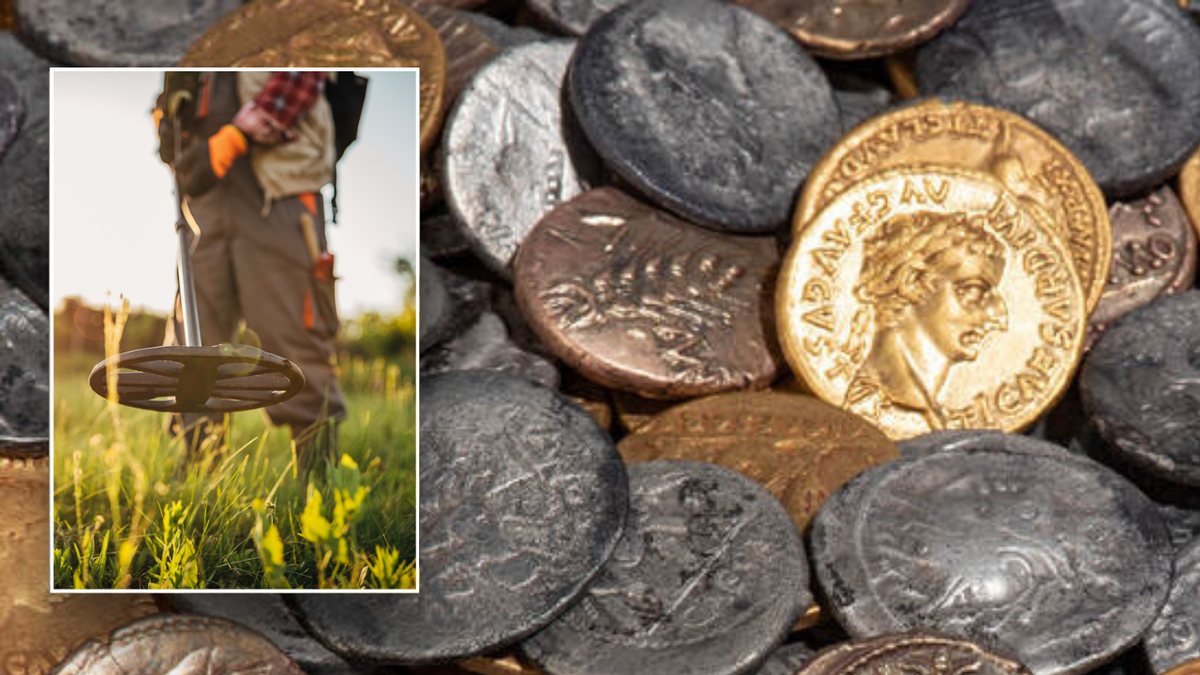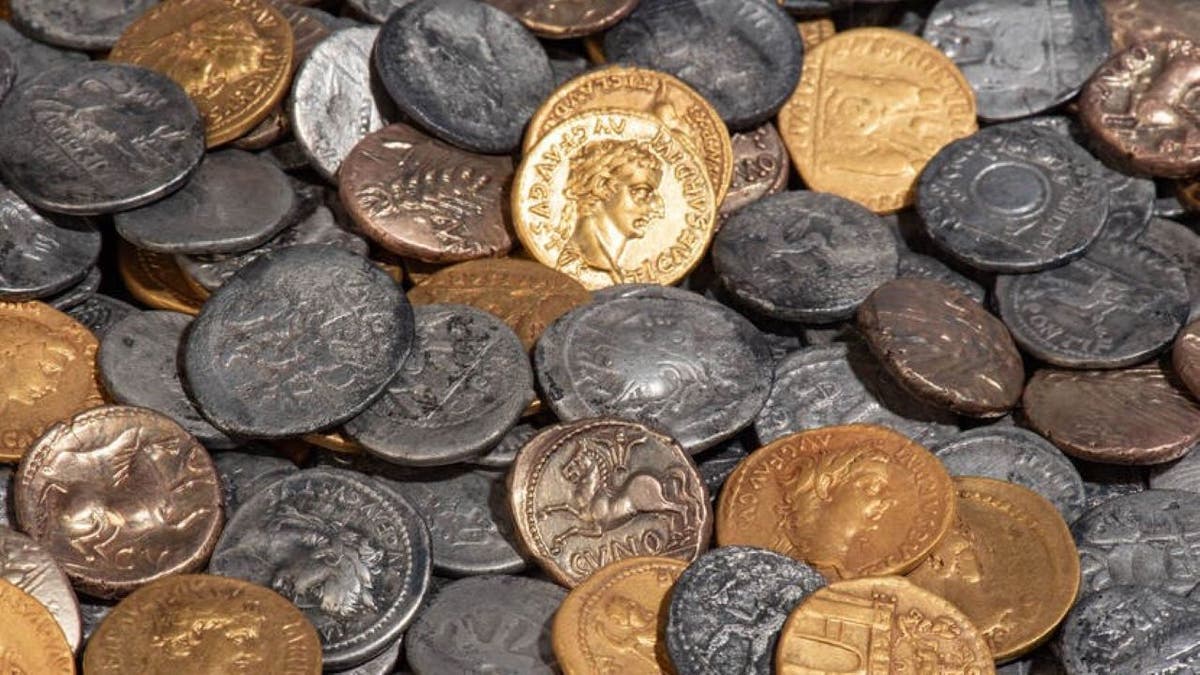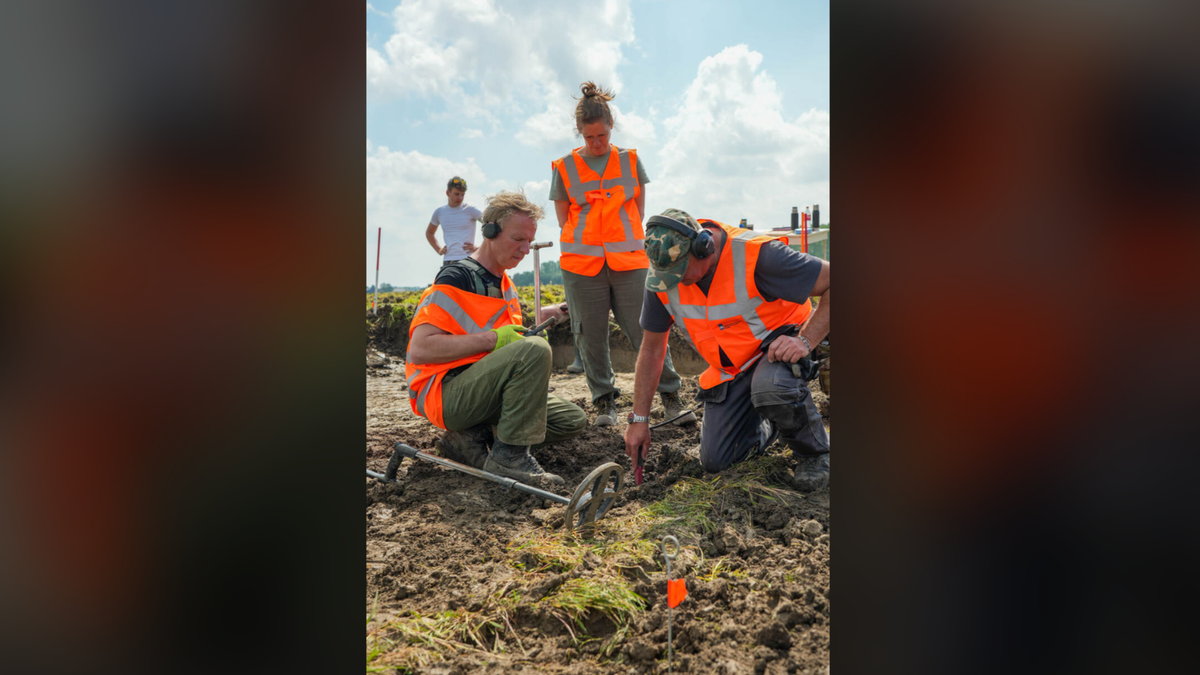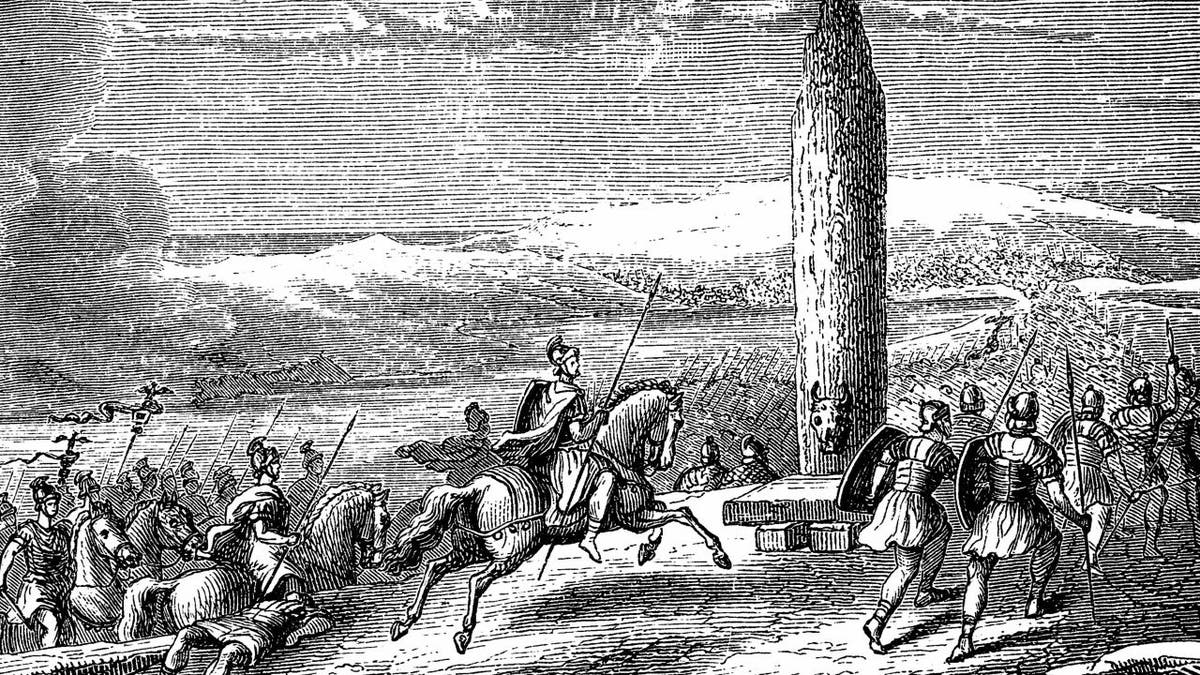In a remarkable archaeological find, two metal detectorists unearthed a treasure trove of coins dating back to the Roman era and pre-Roman Britain. The Cultural Heritage Agency of the Netherlands (RCE) recently announced the discovery of 404 gold and silver coins in Bunnik, Utrecht. This unique collection, comprised of both Roman and British currency, offers unprecedented insights into the Roman conquest of Britain.

Discovered in the autumn of 2023 by Gert-Jan Messelaar and Reinier Koelink, the hoard remained undisclosed until recently. The find includes 42 British gold, silver, and copper "staters" bearing the inscription of King Cunobeline, who reigned from 9 to 43 A.D. The majority of the coins, 288, are Roman, minted between 200 B.C. and 47 A.D., some showing no signs of circulation. Notably, 72 gold aurei were found, two of which appear to be pristine, suggesting they came directly from a newly minted batch.

Experts believe the coins belonged to Roman soldiers returning from campaigns in Britain, with the Roman coins representing their pay and the British coins likely seized as spoils of war. This theory is supported by the location of the discovery along the Lower Germanic Limes, the border of the Roman Empire, which played a significant role in the conquest of Britain.

This remarkable discovery marks the largest of its kind in Utrecht and the only known Roman-British coin hoard found on mainland Europe, with a similar find previously unearthed in the UK. The combined presence of Roman and British currency in a single hoard, buried within the former Roman Empire's northern border region, makes this a truly unique and historically significant find.

Comments(0)
Top Comments